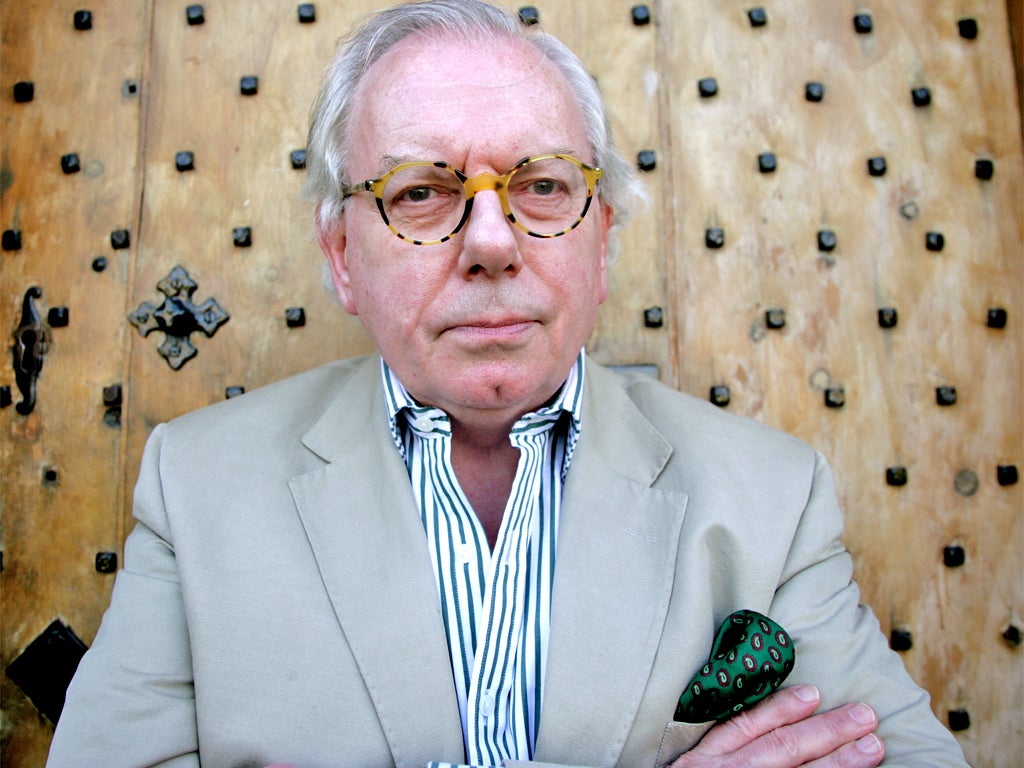The Queen has 'done and said nothing that anybody will remember,' says David Starkey
On September 9 Elizabeth II will become Britain's longest-reigning monarch

The Queen has “done and said nothing that anybody will remember” despite her imminent achievement of becoming Britain’s longest-reigning monarch, the historian David Starkey has claimed.
On September 9, Queen Elizabeth II will have reigned for longer than her great-great grandmother Queen Victoria, who sat on the throne for 63 years and 216 days. But in contrast to Victoria, “She will not give her name to her age. Or, I suspect, to anything else,” Dr Starkey said.
Writing in Radio Times, the historian said it was precisely because the Queen chose not to make her political views public that she had secured the monarchy for at least another generation and extinguished any threat of republicanism.
The Queen has radically redefined the constitutional role of the monarchy, Dr Starkey argued. “To the monarch’s three existing political rights (to be consulted, to encourage and to warn) she has added a fourth: the duty to be silent and make no public comment. And not just on matters of direct political controversy, but on anything controversial at all.”
“The effect has been to deprive republicanism of the necessary oxygen of controversy and largely to asphyxiate it. Republicanism is less common than it was under Victoria (who broadcast her opinions to all and sundry) and far less powerful as a political force.”
He adds: “This does of course present a challenge to Her Majesty’s heir. Will Charles accept the duty of silence as his mother’s legacy? Or will he go his own way? The right to change the new duty is certainly his – but so is the risk of doing so.”
One consequence of keeping her counsel is that the Queen will not be remembered like Victoria who gave her name to an “age of boundless energy and became its symbol. Victoria was and remains universally, instantly recognisable.”
Queen Elizabeth, by contrast, “sees being monarch not as something grand, like being the embodiment of history. Nor, heaven forbid, as something glamorous, like being a film star. No. It is a job. It is as ordinary and humdrum as that.”
Queen's Birthday Honours 2015
Show all 10Much has been read into the Queen’s rare public interventions in matter of political controversy. In a 1996 biography, the historian Ben Pimlott claimed that she has been a significant political influence in Britain throughout her reign and has used her authority to push government policy to the left, citing issues including Suez, Britain’s acquiesence a base for US aircraft bombing Libya and the divisive impact of Margaret Thatcher’s government on society.
The Queen Speaks
• The Queen privately questioned the wisdom of the British invasion of Suez in 1956. “I think the Queen believed (Sir Anthony) Eden was mad,” a courtier is quoted in Ben Pimlott’s biography of the monarch.
• Her relationship with Margaret Thatcher was frosty, with the Queen letting it be known that she disagreed with the Prime Minister’s opposition to sanctions against South Africa, which the monarch felt threatened the Commonwealth.
• Tensions between the pair over the miners’ strike and the Conservative government’s attitude to the poor burst into the open with a 1986 Sunday Times report headlined: “Queen dismayed by ‘uncaring’ Thatcher.”
• The Queen intervened in last year’s Scottish independence referendum when she said she hoped people “think very carefully about the future.” She “purred” down line over the No outcome, David Cameron revealed in unguarded comments.
• The Queen has warned of the dangers of division in Europe ahead of the UK Government’s referendum at a state banquet in Berlin. She urged Britons and Germans not to take the benefits of a peaceful continent for granted. The comments were taken as a hint that she favoured staying in the EU.
Subscribe to Independent Premium to bookmark this article
Want to bookmark your favourite articles and stories to read or reference later? Start your Independent Premium subscription today.

Join our commenting forum
Join thought-provoking conversations, follow other Independent readers and see their replies